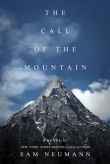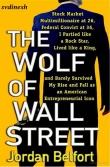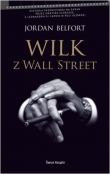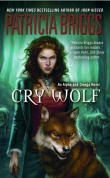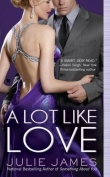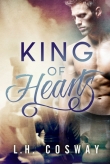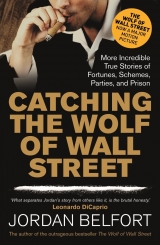
Текст книги "Catch the Wolf of Wall Street"
Автор книги: Jordan Belfort
Жанр:
Биографии и мемуары
сообщить о нарушении
Текущая страница: 26 (всего у книги 33 страниц)
With that the Chef shook James Loo's hand and headed for the door.
And that was when it hit me: I would never see the Chef again. I had no doubt that once the Bastard saw this videotape, he would indict the Chef quickly and then announce my cooperation shortly thereafter. The end was fast approaching, and it was time to say my last good-byes to a man whom I had once trusted with my dirtiest secrets, a man whom I had once called my friend.
The Chef was a man's man, and there was no one else like him. He was the sort of Chef who could stand the heat in the kitchen, the sort of man I would want to go into battle with. How many times had I said that to myself over the years? How many times had I looked to the Chef for strength, and for answers, wisdom, and courage? And this was how it ended up.
As the Chef opened the hotel-room door, I said, “Hey, Chef!”
“Yo!” he said, smiling. “What's up?”
I smiled back sadly. “I just wanted to thank you for everything you've done for me. It's a fucked-up business we're in, and you've always been a friend to me. Don't think I don't know that.”
“Yeah,” he said, “well, it's times like these when you find out who your true friends are. And now you know.” Those were his last words to me before he flashed me a wink and a smile and walked out the door.
James Loo would never make it out the door.
Per OCD's instructions, I would pass him the envelope and then tell him that I needed to go downstairs for a minute to get something from the doorman. Then they would arrest him. Of course, the Chef would never find out, because James Loo would also join Team USA, as would the Chef, I prayed, when histime came. After all, it wasn't himthat they were really after; it was the Blue-eyed Devil.
The Chef was just a stepping-stone.
On my way back out to Southampton, I held on to that thought for all it was worth: that the Chef would roll over on the Devil, and I would be spared the guilt of having ratted out my old friend. And when I wasn't thinking that, I kept reminding myself over and over again that all men betray… all men betray… all men betray.
I would be wrong about that.
Some don't.
*Name has been changed
CHAPTER 23
TWISTS OF FATE
 he only newspaper KGB ever read was Pravda,which was the former Soviet Union's most well-respected newspaper. In Russian, the word pravdameant truth,which was somewhat ironic, I thought, considering that when the Soviet Union was around, Pravdanever published anything even remotely truthful. And while today's Pravdawas substantially more accurate than the Pravdaof old, all I cared about on September 21, the day my cooperation was announced, was that Pravdahadn't dedicated so much as one Cyrillic letter to the day's hot topic in America, which was: The Wolf of Wall Street had secretly pleaded guilty months agoand had been cooperating with the feds for over a year.
he only newspaper KGB ever read was Pravda,which was the former Soviet Union's most well-respected newspaper. In Russian, the word pravdameant truth,which was somewhat ironic, I thought, considering that when the Soviet Union was around, Pravdanever published anything even remotely truthful. And while today's Pravdawas substantially more accurate than the Pravdaof old, all I cared about on September 21, the day my cooperation was announced, was that Pravdahadn't dedicated so much as one Cyrillic letter to the day's hot topic in America, which was: The Wolf of Wall Street had secretly pleaded guilty months agoand had been cooperating with the feds for over a year.
So, while ninety-nine percent of Americans were reading their morning papers and saying, “This is great! They finally brought that bastard to heel!” and the other one percent were reading their morning papers and saying, “This is bad! That bastard is going to rat us out now!” KGB was reading Pravdaand cursing out the Chechen rebels, who, in hermind, were worthless Muslim dogs that deserved to be nuked.
And that was what I loved most about KGB: not her burning desire to turn the Chechens into radioactive dust (I was opposed to that) but the fact that she was completely oblivious to what was going on in my life. Better she focused on those Chechen dogs, I figured, than on the fact that she was living with a rat.
At this particular moment, she was sitting with Carter on the TV room's couch, staring at a forty-inch high-definition TV screen. Every last drop of her mental energy was focused on an ultrabrave, genetically enhanced marsupial named Crash Bandicoot, who was in the process of doing what he was always doing: running for his fucking life.
“What are you guys doing?” I asked the two videoholics.
KGB ignored me; she was too busy at the PlayStation controls, her thumbs moving up and down at a frenetic pace. Carter, however, was just observing, although he was so entranced that he ignored me too. His eyes were as wide as an owl's, his elbows resting on his thighs with his tiny chin cupped in his palms.
I walked over to Carter and said, “Whaddaya doing, buddy?”
He looked up and shook his head in awe. “Yuya's anazin‘ ,Daddy. She… she… she”—he couldn't seem to get the words out—”she's on the top level. She's fighting brand-new monsters I never see before. No one has.”
“Look here,” KGB muttered to Carter, as she assisted Crash in his escape. “If I capture golden mask I become invincible!”
Carter looked back at the TV screen, awestruck. After a few seconds he whispered, “Invincible!”
I sat down beside my son and put my arm around him. “She's pretty good, buddy, huh?”
“Use a jump attack!” he screamed to KGB.
“No!” she shot back. “To defeat this monster I must use spin attack!”
“Ohhhh…” he said softly.
Aspin attack, I thought. Just say the word a, for Chrissake!Still, there was no denying that KGB was the most proficient videogamestresson the entire fucking planet—Ms. Pac-Man, Super Mario, Asteroids, Donkey Kong, Hercules, and, of course, her latest obsession, Crash Bandicoot, the genetically enhanced marsupial from Wumpa Island off western Australia. She'd beaten them all, rising to levels that mere mortals, like Carter, never dared dream about.
As KGB jerked her glorious body this way and Carter jerked his thirty-one-pound body that way, I found myself wondering what the hell made Yulia Sukhanova tick. She played videogames no less than eight hours a day, spending the rest of her time either reading Russian books, babbling on the phone in Russian, or whispering sweet Russian nothings in my ear as we made love. She resided in America, yes, but only in the physical sense. Her heart and soul were still in Russia, stuck in a geopolitical time warp in the year 1989, the very year she'd been crowned Miss Soviet Union.
Intellectually, she was brilliant. She excelled at chess, checkers, backgammon, gin rummy, and, for that matter, all games of chance, which she played with a hustler's edge, and she hated to lose more than anything. Her parents were both dead, her father succumbing to a heart attack when she was only nine. They had been close, she said, and his death traumatized her. He had been an important man in the Soviet Union, a rocket scientist with the highest security clearance, so even after his death the family had always been taken care of. She had never wanted for anything. Bread lines, empty store shelves, drab clothing—things like these were as far removed from Yulia's childhood as they were from mine. Her life had been a charmed one and, by Soviet standards, one of affluence.
Her grace and beauty had come from her mother. I had seen the pictures; she was breathtaking—blond, blue-eyed, and possessing the warmest of smiles. In her day, according to Yulia, her mother was even prettier than she and held a very important position in the arts. In consequence, Yulia had grown up in a chic Moscow apartment, where a never-ending parade of famous Soviet artists-actors, actresses, painters, sculptors, singers, and ballet dancers– partied into the wee hours of the night, drinking Stolichnaya vodka and singing Russian songs.
Her mother hadn't died of natural causes: She was murdered, stabbed to death in her apartment, and that was where the story became murky. Her death had come shortly after Yulia was crowned Miss Soviet Union—and literally coincided with a dispute over who had “rights” to the gravy train that Yulia Sukhanova had become. Many were suspected in the murder, but no one was ever charged. So who murdered her? Was it the KGB? The Russian mob? A disgruntled businessman trying to extort Yulia for her modeling earnings? Or was it simply a random act of violence?
Whichever it was, this was the girl I had fallen in love with, a girl who loved her country but was reluctant to return there even as a visitor. In fact, she hadn't even flown back for her mother's funeral, and while she didn't say it, I knew it was out of fear. Igor– who she still maintained was her brother-in-law, married to her older sister, Larissa—hadn't flown back either, although in his case, she admitted, he couldn't have gone even if he wanted to. He was a wanted man in his country, but not by the law. There were “others,” she said, whose toes Igor had stepped on, and it had something to do with her. And that was it. Try as I might, she refused to go any further with the story.
Insofar as mycircumstances were concerned, I was certain that she knew more than she led on. On the day my cooperation was announced, I offered her a brief explanation of what was going on—stressing the Dave Beall incident and how, in spite of it coming back to haunt me, I still felt like I had done the right thing. I had maintained my self-respect, I told her, to which she grabbed my hand and squeezed it reassuringly. And when the Chef was indicted two weeks later, I told her about that too—how he had been my accountant, a loyal friend who seemed to get an irrational joy out of “scheming,” which, ultimately, had led to his undoing—to which she said that there are no friends in business and that, if I hadn't learned my lesson with Dave Beall, then I never would.
She spent a great deal of time telling me about the great Russian soul—the velikaya russkaya dusha,she called it—and how no American could truly understand it. Honesty, integrity, sensitivity, imagination, compassion, guilt, the need to suffer in silence. Those were just a few of the words she used to describe it, thumbing through her Russian-English dictionary.
Yet, from my perspective, it wasn't her great Russian soul that was impressive, but her loyalty. We had known each other for less than two months, and it had to be plainly obvious to her that I wasn't the man she had thought I was. I was burdened with problems, my future uncertain. I was a man whose financial star was on the fall, not on the rise. Still, none of this seemed to bother her.
When I told her that I had to get rid of the beach house, she shrugged her shoulders and said that she couldn't care less about Meadow Lane. Better we should live in Manhattan, she added, and who needed such a big house anyway? And when I told her that money might get tight for a while, she assured me that any man who could make as much as I had so young could figure out a way to do it again.
Emboldened by her words, I nodded in agreement and then made a decision to start trading stocks again, albeit legitimately. The NASDAQ was flying—dot-com mania, they called it—and with the money the government had left me, I could make a few million a year in my sleep. Just why I hadn't thought of this before I wasn't so sure, although I knew it had something to do with KGB believing in me.
In that sense, she was everything the Duchess wasn't. She was willing to bet on me,not on what I had come to surround myself with. Yet, in the Duchess's defense, Yulia didn't have two children to worry about, nor did she have “history” with me.
Whatever the case, the Duchess was my past and KGB was my future, and here she was, about to reach the twenty-fifth level of Crash Bandicoot. All she needed to do was defeat Dr. Neo Cortex, Crash's nemesis, and then Crash would be reunited with his girlfriend, Tawna, another genetically enhanced bandicoot, who, in the world of bandicoots, was as sexy as Jessica Rabbit.
Suddenly, KGB started screaming: “Blyad! Blyad! Nyet! Nyet!”
“Back up!” screamed Carter. “He's throwing fireballs!”
“I can't!” screamed KGB. “I have lost power!”
“No!” screamed Carter. “Use a power crystal…” and I watched the screen with total fascination as a muscle-bound ape named Koala Kong picked up a fireball and winged it at Crash's head, causing him to burst into flames. At this point Crash screamed in agony, jumped into the air, did a three-sixty, and then landed on his tiny bandicoot butt and burned to death. Then the TV made a sound like: “Wa, wa, wa, wa, wa… boom!”And that was it: The screen went black.
At first, KGB and Carter just looked at each other, frozen. Then KGB shook her head and said, “Chto ty nashu stranu obsirayesh!”
Carter compressed his lips and nodded his little head in agreement, having no idea that KGB had said, “I just shit all over this stupid game!” Then Carter said, “Again, Yuya,”to which KGB nodded in resignation, took a deep breath, and hit a button on the controller, bringing Crash back to life, albeit at the bottom of Neo Cortex's castle.
And as they lost themselves in the game, I found myself wondering what kind of mother KGB would be to my children if disaster struck. Unlikely as it seemed, it was still something I had to consider—that the Duchess could die and the kids would become solely my responsibility.
KGB and Carter had a close connection based on their love of video games, but, outside that, I wasn't so sure. There was a certain disconnectbetween them, inasmuch as when they weren't sitting in front of the TV screen they said very little to each other. Of course, she was never anything but nice to him, no two ways about that, but there was a lack of warmth, I thought, a certain apathy that one wouldn't expect to find given the storied nature of the great Russian soul.
Chandler, however, didn't play video games; she played with Barbie dolls and she played house and dress-up and she liked to watch TV—of the American variety—so she and KGB had very little in common. And that bothered me; it bothered me that I never saw KGB reaching out to her. Indeed, as with Carter, she was always nice and always quick to offer a warm smile, but there was still that same disconnect.
In my mind it was simple: KGB was the adult and Chandler and Carter were the children, so the ball was in hercourt, not theirs. Or was I expecting too much? She wasn't the mother of my children, so perhaps it was unreasonable to expect her to be a second mother to them. Maybe a degree of casual indifference was healthy, maybe it was normal, and maybe I should just thank my lucky stars that KGB was kind. No, I thought, kindness wasn't enough. Apathy is its own form of cruelty, and children can spot it a mile away.
Meanwhile, on the other end of the spectrum was John Macaluso, the Duchess's boyfriend. Just last week he'd called me out of the blue and suggested that we meet for a cup of coffee. He was spending a lot of time with my kids, he said warmly, and he wanted to assure me that he would always try his best to be a positive influence in their lives. It was a classy move, to say the least, and when we met a few days later at the Old Brookville Diner, we hit it off instantly.
He was about my height and was thin and wiry and bursting at the seams with energy. He was handsome, with salt-and-pepper hair and prominent Italian features, but he was charismatic more than anything. We spent an hour exchanging war stories—carefully avoiding the subject of my failed marriage to the Duchess or his current relationship with her—while I resisted the urge to ask him if she moaned, “Come for me, my little prince!” while they were having sex. Yet, with all the laughing and smiling, there was one issue that hung over the meeting like a dark cloud.
Finally he brought it up.
“You know, it really sucks that I live in California and Nadine lives in New York,” he said wearily. “It figures I'd fall in love with a woman who lives three thousand miles away!”
And that was it: The cat was out of the bag.
There was a major problem—he knew it and I knew it—and it wasn't about to go away on its own. Either he would have to move here or she would want to move there. And knowing the Duchess's attorney—that fat bastard Dominic Barbara, with his notoriously fat mouth and penchant for bathing his even fatter ass in the limelight—he would use my legal predicament as leverage.
John was no fool; upon seeing my reaction, he quickly added that Nadine would never do anything behind my back. She knew how close I was with the kids and was always saying what a good father I was. And, with that, we dropped it, although I think we both knew that at some point this issue would rear its ugly head again.
And the lovely KGB—where did she stand in all this?
Just watching her with Carter right now, united by their love of the genetically enhanced bandicoot, gave me hope for everything she might be. Perhaps she could learnto love my children, and perhaps I could learnto love her the same way I had once loved the Duchess and the way I had once loved Denise—for, in truth, I felt the same disconnect in my own relationship with her that I sensed between her and my children.
Perhaps, over time, the gulf between our cultures could become our greatest strength. Americans, after all, had a great soul of their own, didn't they? According to Dostoyevsky, the essence of the great Russian soul was the ever-present and unquenchable need to suffer, and, according to yours truly, the essence of the great American soul was: Why should we suffer at all when our parents and grandparents suffered for us? So, together, couldn't KGB and I unite into a perfect soul? It would be my American optimism mixed with her Russian fatalism, the sum of which would be perfection.
Either way, we had a few years to bridge the gulf. The new millennium was just around the corner—only eighty days away—and it would be three or four years after that until I got sentenced.
Then the phone rang.
“Blyad!”sputtered KGB. “Please pick up phone! It disturb my play.”
Carter turned to me and nodded. “It disturb her play.”
“Disturbs,”I said to Carter, fearing KGB's influence over his language skills, and I reached over to the phone on the side table and picked it up. “Hello?”
“It's your lawyer,” said Magnum, in an octave of C-minor. “How are you?”
“I'm doing good,” I replied automatically, and then realized afterthe fact that I actually wasdoing good. Yes, I thought, for the first time in a long time I was approaching something close to happiness. “What's going on?” I asked.
“There's been a flurry of activity at the U.S. Attorney's today.”
I felt my heart skip a beat. “Oh, really? In reference to what?”
“Are you familiar with an AUSA named Dan Alonso?”
“No,” I replied quickly. “What about him?”
“Well, he's your new AUSA,” answered Magnum. “He called Nick and me this morning to give us a heads-up. Joel is leaving the office next week and Alonso has been assigned to your case.”
I crossed my fingers: “So what's he like? Is he a nice guy or is he a douche bag?”
“Welllllll…”said Magnum, “on a scale of one to ten, with a douche bag being a one and a nice guy being a ten, I would say Alonso falls somewhere between a ten and an eleven.”
“You're kidding!” I exclaimed.
“Shhhh!” snapped KGB. “I cannot concentrate!”
Carter looked up and put his forefinger to his lips. Then he looked back at the screen. I chuckled and said into the phone, “Is he really that good?”
“Yes,” answered Magnum, “he really is. He's tough, fair, very smart, an excellent litigator, and, above all, he's got a big heart. I've already broached the subject of reducing your obstruction charge, and he said he's willing to sit down and talk about it. He wants to meet you first, and then he'll let us plead our case. I think we're in very good shape there.”
I felt a wave of relief come over me. “Well, this is great news, Greg, really great.”
“Yeah, it is,” he agreed. “On a separate note, though, I got a very strange call from Joel Cohen this morning. He was saying something about you being in Atlantic City a few months ago and that you refused to identify yourself. He hinted that you were trying to launder money or something. I know that's not true, right?”
My mouth immediately went dry, my gut drawing conclusions faster than my mind could come to them. “Of course not!” I sputtered. “That's total bullshit! I wasn't trying to launder money! It was a misunderstanding!”
“So you werethere?” asked Magnum, seeming extremely surprised.
I already knew where this was going.
In the end, I could prove that I hadn't tried to launder money, but I couldn't prove that I hadn't violated my bail restrictions. I had left New York without permission. “Yeah, I was there,” I said softly. “Hold on a second; let me switch rooms.”
On my way out of the TV room, I took a moment to regard the innocent face of my son. He had had a rocky start, Carter, yet he had grown strong. A terrible wave of sadness came over me. I felt like I had let him down.
Inside the master bedroom, I picked up the phone of the future and sat down on the edge of the bed, then went about telling my lawyer the story, all the sordid details—starting with the luscious yet underage Kiley and finishing with the stone-faced woman in the cashier's cage who refused to give me my money back. Then I said, “They're not going to break my cooperation over this, right?”
“No,” he replied quickly, “not if what you're telling me is true.”
Trying to maintain control, I took a deep breath and let it out slowly. Then I started spitting nails at my attorney, swearing up and down that I was telling the truth this time. First I swore on my eyes, then I swore on my children's eyes, then I swore on my unborn children's eyes, and then I swore on Magnum's children's eyes too.
Finally, he said, “All right! I believe you! I believe you! You can stop selling me now. Jesus! You know, either way, we still have some serious damage control to do. What kind of relationship do you have with your pretrial-services officer?”
“Pat Mancini?” I replied, sensing a thin ray of hope. “He's great!” I chose not to bring up my misleading phone call to Pat, with its vague reference of being stuck in thecity, without saying whichcity. “Why do you ask?”
“I askbecause he's the one who can ultimately turn your lights out here. If he writes a letter to the judge about your little helicopter excursion—destination, Atlantic City; companion, underage girl; seed money for gambling, a bag full of the government's cash—it could be a problem, Jordan. It doesn't look like the behavior of a contrite man. You understand?”
And that was when it hit me: the sheer audacity of my actions!It wasn't so much that I had violated my release conditions (that was bad enough on its own) but how I had done it.
If I had driven to Atlantic City in a beat-up station wagon with my seventy-year-old mother and a bunch of rolled-up quarters, then Judge Gleeson would probably say, “Oh, it's just the case of a good son trying to spend some quality time with his mom,” and then he would let me off with a warning. But I had stolen $100 million and was being given a second chance, and how did I show my appreciation? I took a secret helicopter ride to the Sodom and Gomorrah of New Jersey with an underage model. And to finance my trip I took an interest-free loan from the federal government!
With a sinking heart, I said, “So what happens next?”
There were a few moments of silence, then Magnum said, “Nothing, hopefully. I'll call Joel back and offer your side of the story, and then I'll tell him that I'll work it out with Alonso, although this is not exactly the best way to start a relationship with him.” He paused for a moment. Then: “But what are you gonna do, right?”
“Yeah, right,” I said tonelessly. “What are you gonna do.”
We spent a few more minutes strategizing, but there wasn't really much we could do. The most important thing, we agreed, was to make sure this never made it before Judge Gleeson. He was a conservative man, said Magnum, an altogether rational man, who lived his life by the rules. This was just the sort of thing to raise his ire.
After we hung up the phone, I sat there on the edge of the bed for a moment, dumbfounded. I must have said a thousand times, in jest, that I was my own worst enemy, but this time it wasn't funny. Once more I had put my freedom in jeopardy, and for what? In retrospect, my decision seemed utterly mind-boggling. Was I really that self-destructive? I didn't think so, yet from the outside looking in, that's exactly what I appeared to be. What malfunction did I possess that caused me to do these things, that caused me to take these wild risks, even when there was no upside?
I took a deep breath and fought down the urge to beat myself up any further. What was done was done. If Judge Gleeson found out about this, he would throw me in the slammer on the spot—at which point I would lose Yulia, the children would be heartbroken, the Duchess would move to California, Meadow Lane would be forfeited in my absence, my furniture and clothing would be auctioned off for pennies on the dollar, and my plan to trade stocks would be thwarted. Yet my expenses with the Duchess and the children would continue—so when I finally got sentenced, three years from now, and I emerged from jail a few years after that, I would be naked, alone, penniless, homeless, and my kids would live three thousand miles away, calling John Macaluso Daddy!

